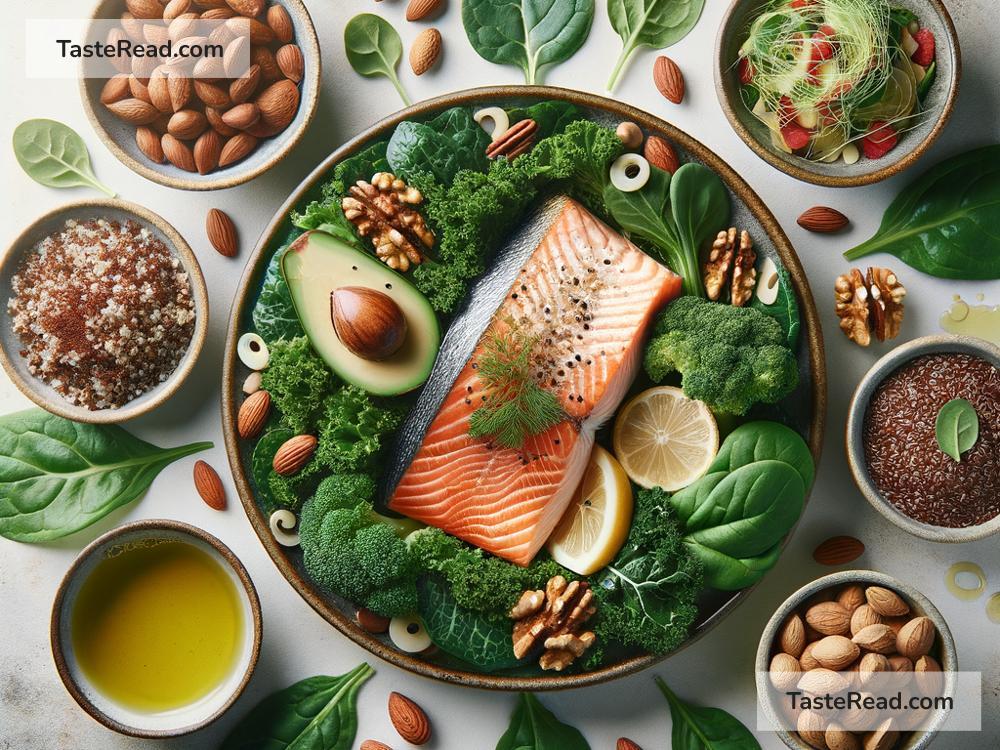Boost Plaque Stability with Smart Food Choices
Heart health is all about balance. One crucial aspect is plaque stability—keeping the fatty buildups in your arteries strong and unlikely to rupture. When plaques become unstable, they may cause dangerous blockages, leading to heart attacks or strokes. The good news is that what you eat can play an important role in maintaining stable plaque and overall artery health. Let’s dive into the foods that can help!
What Is Plaque Stability?
Before talking about food, let’s first understand plaque stability. Plaques are made up of fat, cholesterol, calcium, and other substances that stick to artery walls. Over time, these plaques can harden, narrowing the arteries and restricting blood flow. Stable plaques stay attached to artery walls, while unstable plaques may rupture, forming clots that can block blood flow completely.
The key to plaque stability lies in keeping inflammation low, reducing oxidation, and promoting healthy artery walls. And guess what? Certain foods can make a big difference!
Top Foods for Enhancing Plaque Stability
1. Fatty Fish
Fish rich in omega-3 fatty acids, like salmon, mackerel, and trout, can improve plaque stability. Omega-3s reduce inflammation and help keep the artery walls strong and flexible. They also prevent plaque from growing larger and lower levels of harmful triglycerides in the blood. Aim to eat fatty fish at least twice a week for a heart-friendly boost.
2. Nuts and Seeds
Walnuts, almonds, chia seeds, and flaxseeds are great sources of heart-healthy fats, fiber, and antioxidants. These nutrients reduce oxidation—a process that can weaken plaque—and promote healthier arteries. Plus, they help lower bad cholesterol (LDL) and improve good cholesterol (HDL), making it harder for plaques to grow or rupture.
Tip: Moderation is key! Nuts and seeds are calorie-dense, so enjoy small handfuls or sprinkle them on your meals.
3. Fruits
Fruits, especially berries, oranges, and apples, are packed with antioxidants, vitamins, and fiber. Berries like blueberries, strawberries, and raspberries contain polyphenols, which help reduce inflammation and oxidative stress. Citrus fruits are rich in vitamin C, which can strengthen artery walls and promote collagen production—making plaques less prone to rupture.
4. Vegetables
Leafy greens like spinach, kale, and Swiss chard are powerhouse foods for your heart. High in fiber, potassium, and magnesium, they support healthy blood pressure and reduce inflammation. Cruciferous vegetables like broccoli and Brussels sprouts have compounds that promote artery health by reducing plaque buildup and oxidative stress.
Pro tip: The more colorful your veggies, the better! Bright orange carrots or deep purple beets deliver antioxidants that protect your arteries.
5. Whole Grains
Whole grains like oats, quinoa, and brown rice are rich in fiber, which helps lower cholesterol levels. Soluble fiber, found in oats and barley, binds to cholesterol in your gut and flushes it out before it can contribute to plaque buildup. Regularly eating whole grains is a fantastic way to keep your arteries clean and stable.
6. Olive Oil
Extra-virgin olive oil is loaded with healthy monounsaturated fats and antioxidants known as polyphenols. These compounds improve cholesterol profiles and reduce inflammation, helping stabilize plaques. Use olive oil as your go-to cooking oil or drizzle it over salads for a heart-healthy touch.
7. Legumes
Beans, lentils, and chickpeas are excellent sources of plant-based protein, fiber, and minerals like magnesium. They promote lower cholesterol and steady blood sugar levels, two factors linked to stable plaque. Adding legumes to your meals is easy—make soups, salads, or dips like hummus.
8. Dark Chocolate
Yes, chocolate can be heart-healthy! Dark chocolate (at least 70% cocoa) contains flavonoids, antioxidants that improve blood vessel function and fight inflammation. But remember, moderation is key—a small square or two a day is all you need.
9. Green Tea
Green tea offers an impressive dose of antioxidants called catechins, which may improve artery flexibility and reduce plaque vulnerability. Swap sugary drinks for green tea, and enjoy its heart-healthy perks.
10. Avocado
Avocados are rich in monounsaturated fats, fiber, and potassium, making them ideal for heart health. They help balance cholesterol levels, reduce inflammation, and strengthen artery walls. Add avocado to your salads, sandwiches, or smoothies for a creamy and nutritious upgrade.
Foods to Limit or Avoid
While some foods are great for enhancing plaque stability, others can do the opposite. Try to limit these:
- Trans Fats: Found in fried foods, packaged snacks, and baked goods, trans fats increase inflammation and harmful cholesterol.
- Sugary Foods & Drinks: Excess sugar can lead to insulin resistance and inflammation, making plaques more unstable.
- Processed Meats: Sausages, bacon, and hot dogs are linked to higher inflammation and poorer heart health.
- Alcohol in Excess: While modest amounts of red wine may have benefits, drinking too much alcohol harms artery health.
Small Changes Make a Big Impact
Improving plaque stability doesn’t require drastic lifestyle changes. Instead, focus on small adjustments over time:
- Add an extra serving of fruits and vegetables to your plate.
- Swap white bread for whole-grain options.
- Snack on nuts instead of chips.
- Enjoy fish twice a week instead of red meat.
These tiny steps can help you nurture your arteries and avoid complications in the long run.
Final Thoughts
Your heart works hard to keep you going every day. Supporting its health with smart food choices is one of the best gifts you can give yourself. By incorporating the foods above into your diet, you’ll reduce inflammation, strengthen artery walls, and improve plaque stability. It’s not about being perfect—it’s about progress. So, start small, eat well, and show your heart some love!
What’s your favorite heart-healthy food? Let us know in the comments!


